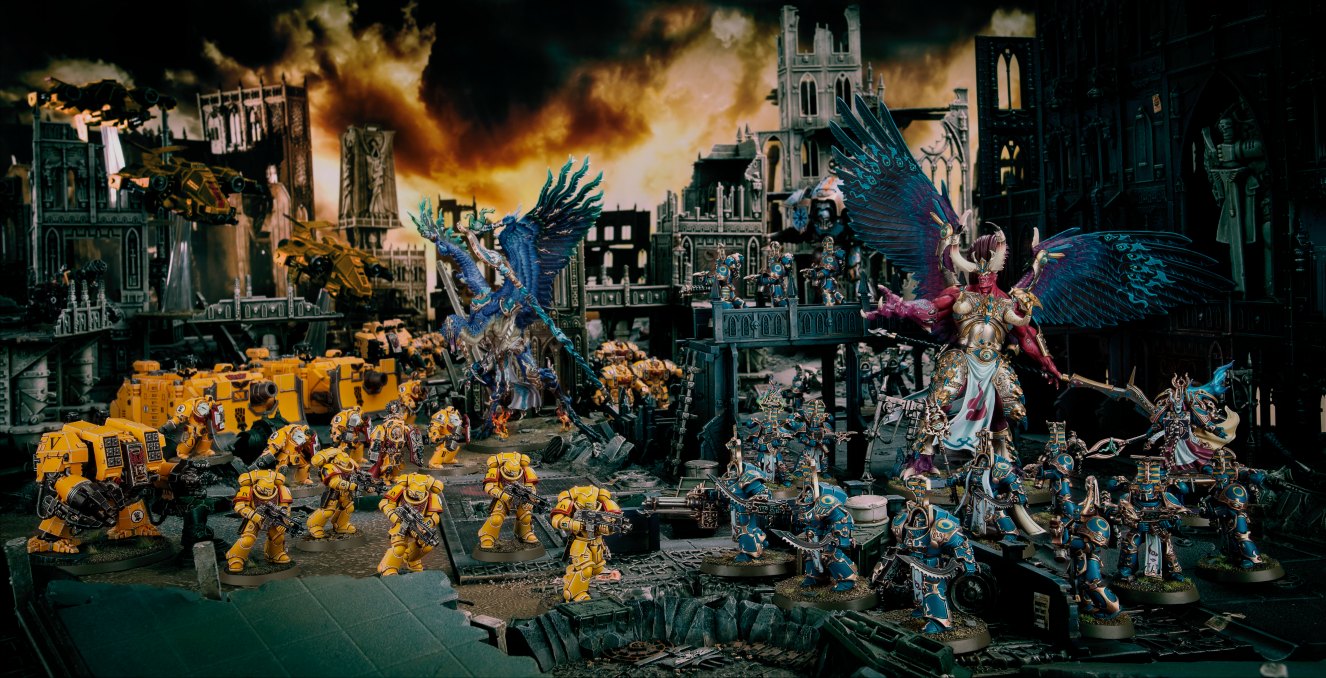Exploring the World of Games Workshop: A Comprehensive Guide

Games Workshop stands as a pillar in the tabletop gaming industry, renowned for its dedication to creating intricate miniatures, expansive lore, and immersive games. With a history that spans over four decades, the company has cultivated a global community of enthusiasts who are passionate about the craftsmanship, strategy, and artistry involved in its products. This article delves deep into the world of Games Workshop, examining its origins, key products, and the impact it has had on the gaming landscape.
Table of Contents
The Origins of Games Workshop
Founded in 1975 by John Peake, Ian Livingstone, and Steve Jackson, Games Workshop began as a small business dedicated to creating traditional board games. However, it quickly evolved into something much larger. By the late 1970s, Games Workshop had established itself as the European distributor for Dungeons & Dragons, a relationship that significantly influenced the company’s direction. The success of Dungeons & Dragons inspired Games Workshop to create its own range of games, leading to the development of its most iconic properties: Warhammer Fantasy Battle and Warhammer 40,000.
Warhammer Fantasy Battle: The Birth of a Genre
Warhammer Fantasy Battle, first released in 1983, was a groundbreaking game that introduced the concept of mass battles between armies of miniatures. Set in a richly detailed fantasy world, Warhammer Fantasy Battle allowed players to command armies composed of various races, including humans, elves, dwarves, orcs, and undead. The game combined tactical depth with an engaging narrative, setting a new standard for tabletop wargaming.
Over the years, Warhammer Fantasy Battle evolved, with numerous editions and expansions that added new rules, armies, and lore. The game’s success cemented Games Workshop’s reputation as a leader in the tabletop gaming industry. Although Warhammer Fantasy Battle was eventually replaced by Warhammer Age of Sigmar in 2015, its legacy continues to influence the design and development of modern wargames.
Warhammer 40,000: A Dystopian Future Unveiled
Warhammer 40,000, often abbreviated as 40K, is arguably Games Workshop’s most famous creation. Launched in 1987, Warhammer 40,000 transported the company’s trademark blend of strategy and storytelling into a dystopian science fiction universe. Set in the grim darkness of the far future, Warhammer 40,000 depicts a galaxy consumed by war, where powerful factions clash for dominance.
The game’s unique aesthetic, characterized by heavily armored Space Marines, towering war machines, and nightmarish alien creatures, has captivated players for decades. Like Warhammer Fantasy Battle, Warhammer 40,000 has seen multiple editions and expansions, each one refining the rules and expanding the lore. The game’s enduring popularity is a testament to its depth, complexity, and the creativity of its designers.
The Craft of Miniatures: A World of Artistry
One of the hallmarks of Games Workshop’s success is the exceptional quality of its miniatures. Each model is meticulously designed, with an attention to detail that reflects the company’s commitment to artistry. From the iconic Space Marine to the terrifying Tyranid, Games Workshop miniatures are celebrated for their dynamic poses, intricate armor, and expressive features.
Painting these miniatures is an integral part of the hobby, and Games Workshop provides a wide range of paints, brushes, and tools to help hobbyists bring their models to life. The company also offers painting guides and tutorials, making the art of miniature painting accessible to beginners while still providing challenges for seasoned artists.
The Community: A Global Network of Enthusiasts
Games Workshop has cultivated a vast and dedicated community of players, painters, and collectors. Local game stores, known as Warhammer stores, serve as hubs for the community, offering a space for players to meet, play, and share their passion for the hobby. These stores often host events such as painting competitions, tournaments, and narrative campaigns, fostering a sense of camaraderie among participants.
Online forums, social media groups, and dedicated websites also play a crucial role in connecting the global Games Workshop community. These platforms allow hobbyists to share their work, discuss strategies, and stay updated on the latest news and releases. The sense of belonging and shared enthusiasm is a key part of what makes Games Workshop more than just a company—it’s a community.
Expanding Horizons: Specialist Games and Beyond
While Warhammer Fantasy Battle and Warhammer 40,000 are Games Workshop’s flagship products, the company has also developed a variety of specialist games that explore different aspects of the hobby. Titles like Necromunda, Blood Bowl, and Warhammer Underworlds offer unique gameplay experiences, each with its own dedicated following.
Necromunda, for example, is a skirmish game set in the underhive of a sprawling city, where gangs fight for control of territory and resources. Blood Bowl, on the other hand, combines fantasy violence with the rules of American football, creating a game that is both strategic and humorous. Warhammer Underworlds is a fast-paced, competitive game that combines elements of deck-building with tactical combat.
These specialist games not only provide variety for veteran players but also serve as entry points for newcomers who may be intimidated by the scale of Warhammer 40,000 or Age of Sigmar. By offering a range of games that cater to different tastes and playstyles, Games Workshop ensures that there is something for everyone in its vast catalog.
The Influence of Games Workshop on Pop Culture
The impact of Games Workshop extends far beyond the tabletop. The rich lore and distinctive visual style of Warhammer and Warhammer 40,000 have influenced various forms of media, including video games, novels, and even music. Video game adaptations of Warhammer titles, such as the Total War: Warhammer series and Warhammer 40,000: Dawn of War, have brought the worlds of Games Workshop to a wider audience, allowing players to experience the epic battles and complex narratives in a digital format.
The Black Library, Games Workshop’s publishing arm, has produced a vast collection of novels that delve deeper into the stories of the Warhammer universes. These books have not only expanded the lore but also attracted readers who may not be familiar with the tabletop games. Additionally, the dark and gothic aesthetic of Warhammer 40,000 has inspired artists, musicians, and filmmakers, contributing to the broader cultural impact of the franchise.
The Future of Games Workshop
As Games Workshop continues to evolve, it remains committed to innovation while staying true to its roots. The company regularly releases new miniatures, game expansions, and updated rules, ensuring that the hobby remains fresh and exciting for its community. Additionally, Games Workshop has embraced digital technology, offering digital versions of its rulebooks, painting guides, and even launching its own subscription-based streaming service, Warhammer digitaldailymail.com.
The future looks bright for Games Workshop, with plans to expand its reach even further. Whether through new games, collaborations with other media, or the continued support of its dedicated community, Games Workshop is poised to remain a dominant force in the world of tabletop gaming for years to come.
Conclusion
Games Workshop has built an empire on the foundation of creativity, craftsmanship, and community. From its humble beginnings to its current status as a global leader in tabletop gaming, the company has consistently pushed the boundaries of what is possible in the hobby. As we look to the future, Games Workshop’s influence shows no signs of waning. It continues to inspire generations of gamers, artists, and storytellers, ensuring that its legacy will endure for many years to come.







